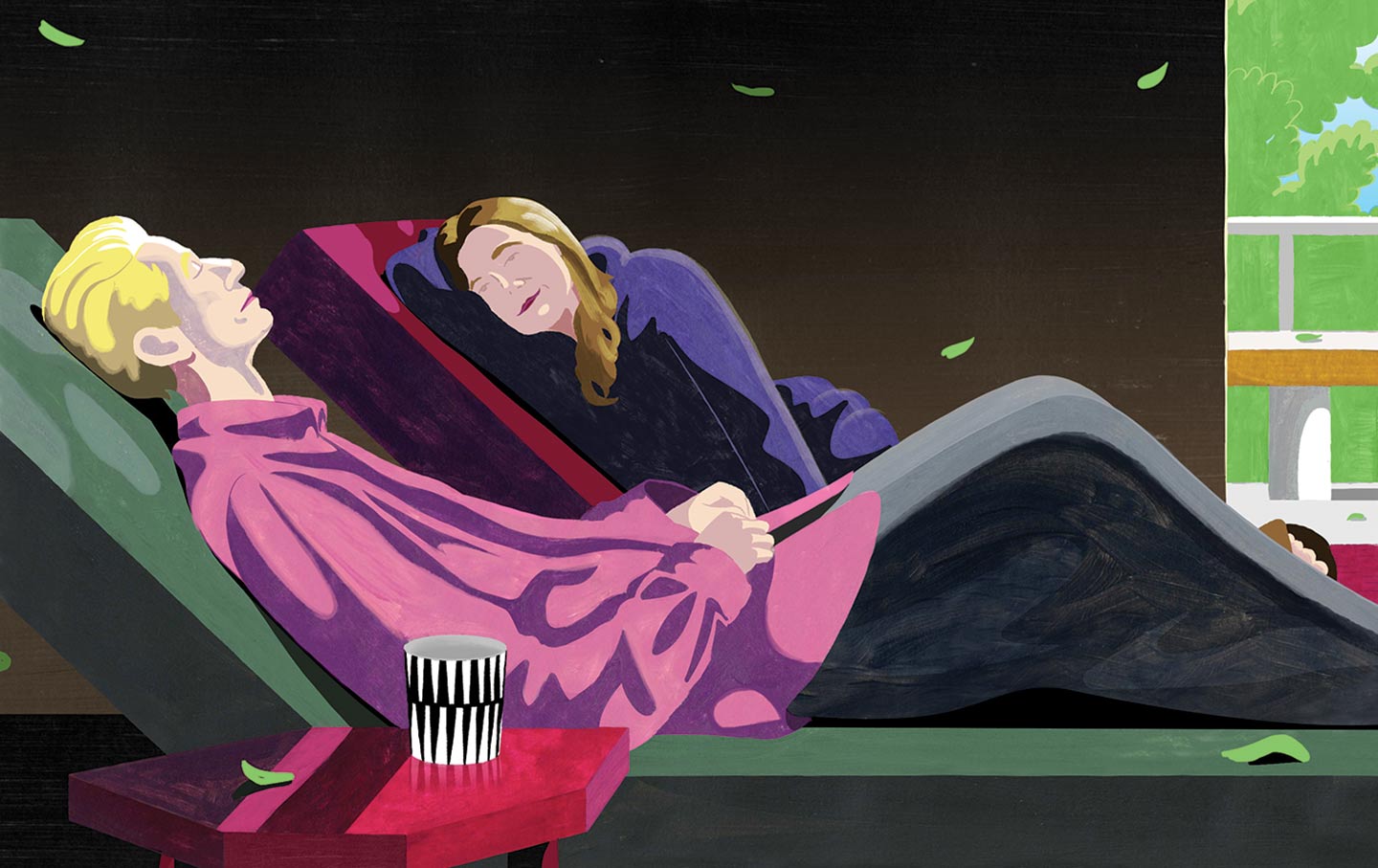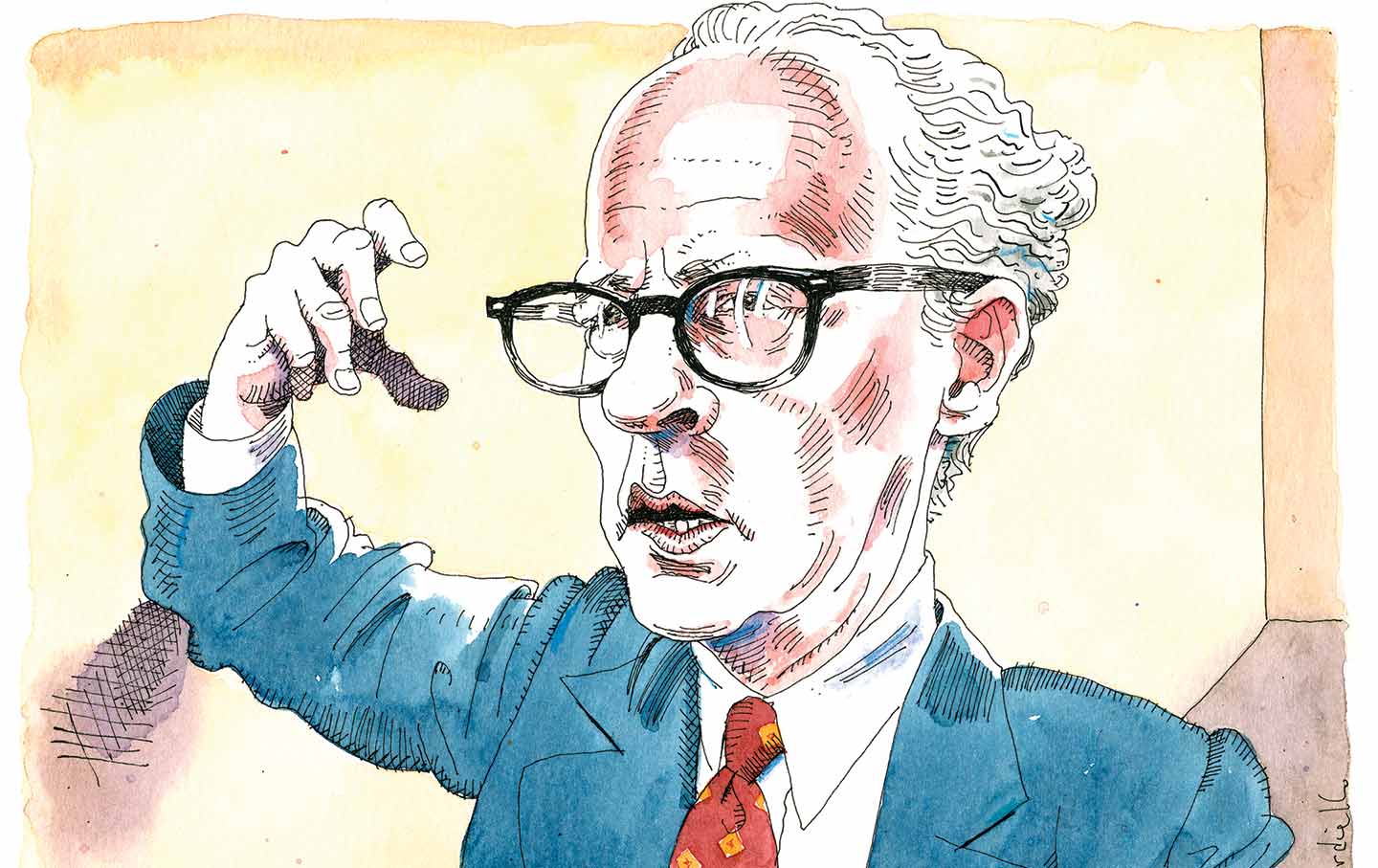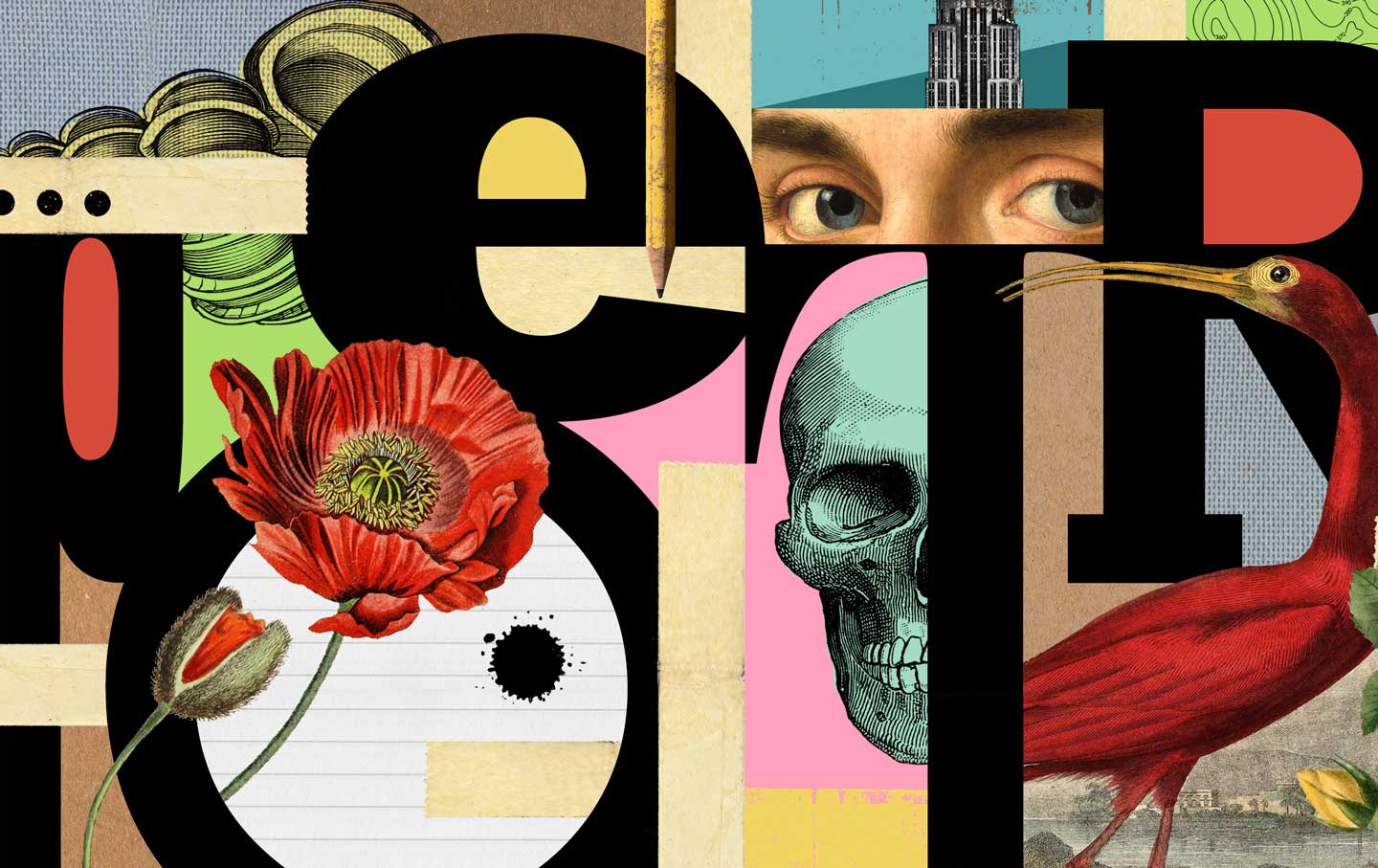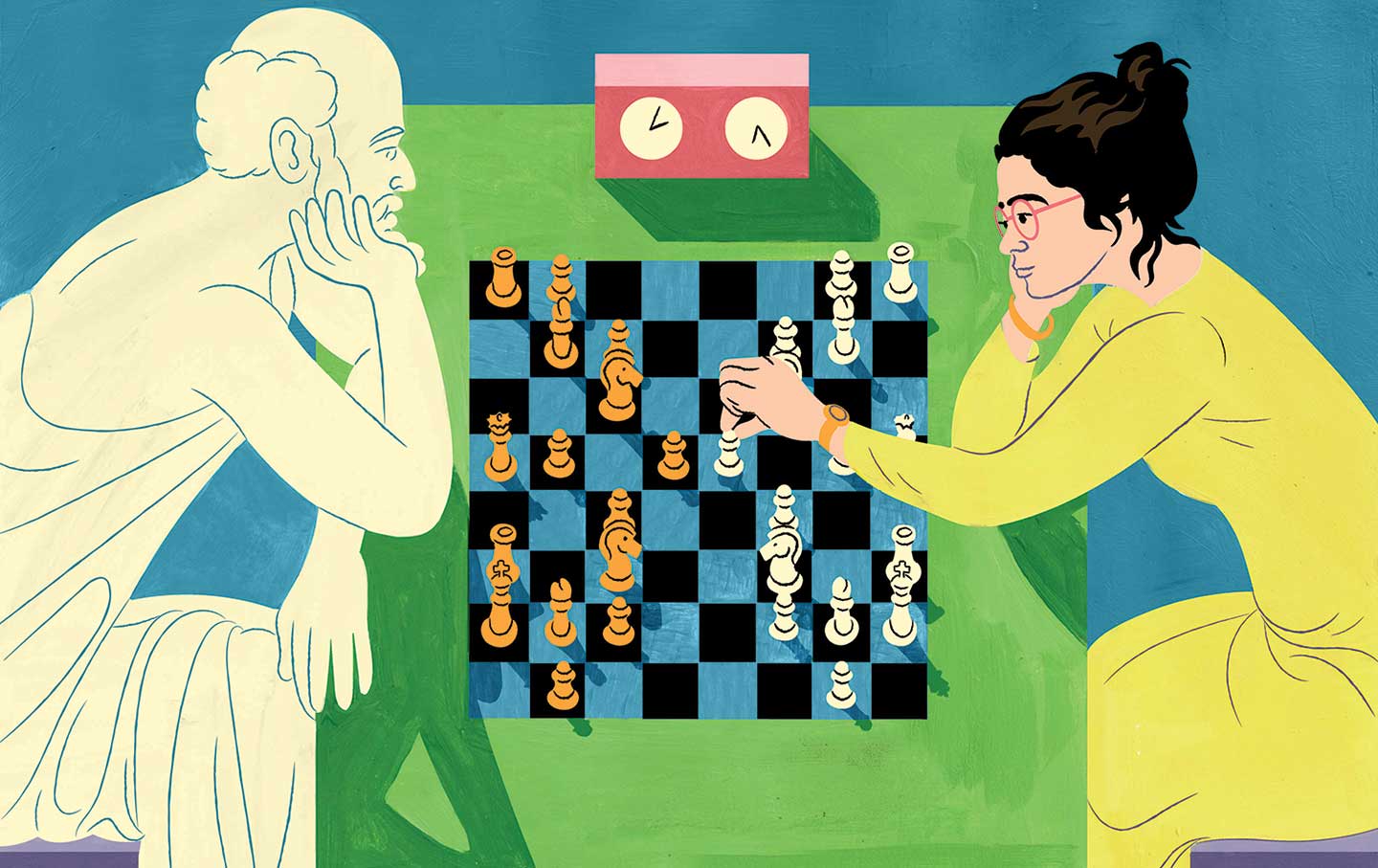Claire Messud’s Remarkable Experiment in Historical Fiction
Chronicling a pied-noir family across generations and continents, she examines the moral and political responsibilities a novelist owes their kin and their readers.
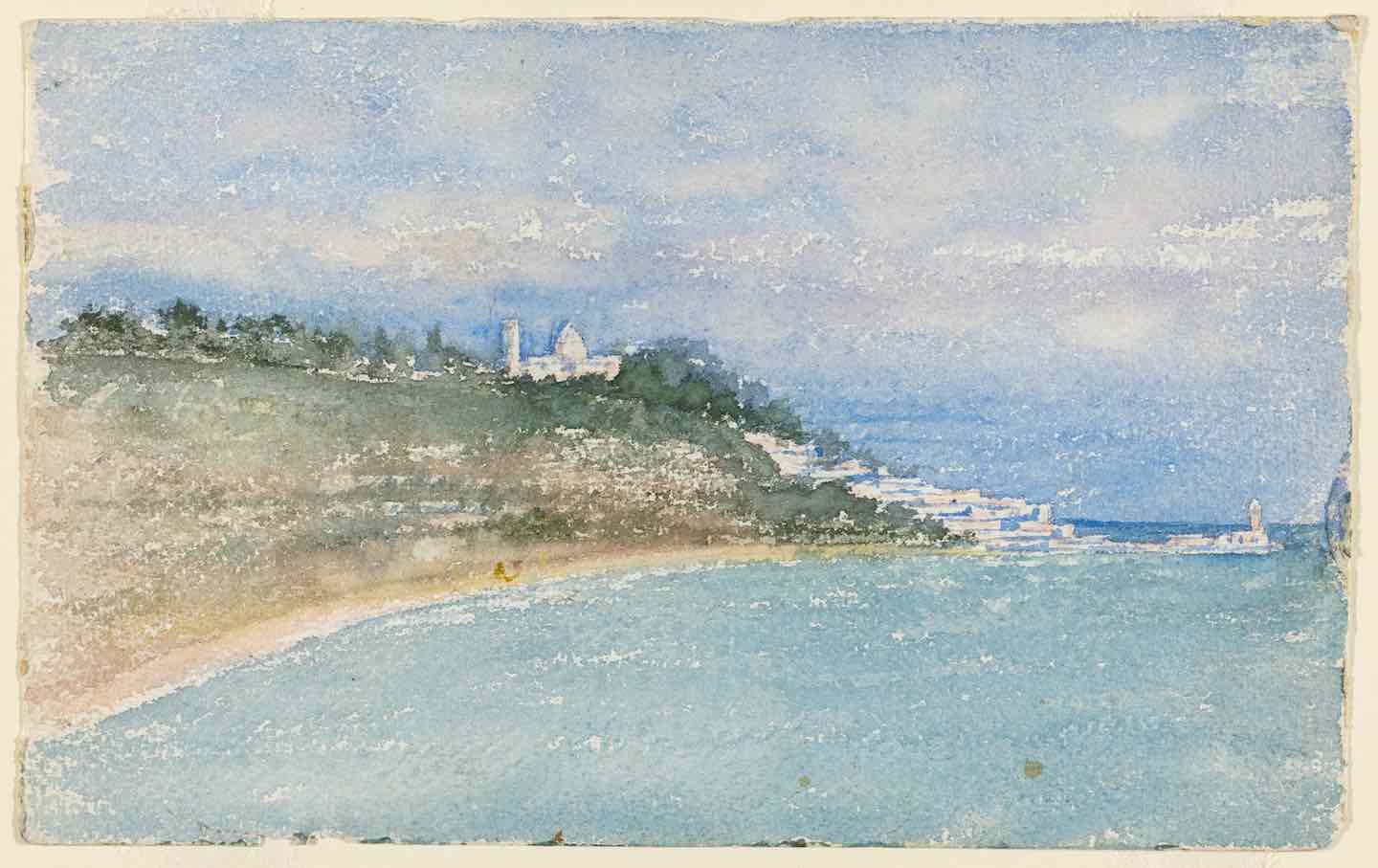
Point West of Algiers, North Africa, travel sketch, 1896.
(Photo by Heritage Art / Heritage Images via Getty Images)Opposite the copyright page in Claire Messud’s newest book, This Strange Eventful History, is a note in small, faint type. It begins: “Although this novel was inspired by the author’s family history, this is a work of fiction and the usual rules apply. All characters, events, and incidents…reflect her imagination.” Although the warning is literally marginal, all but designed to be skipped, it’s a valuable disclaimer for attentive readers—attentive to this book or, more broadly, to contemporary American literature. In roughly the past decade, it has become a habit among many readers (and, unfortunately, many critics) to assume that much literary fiction is autobiographical unless proven otherwise. In fairness, many novelists draw on their own lives, but reading their work as if it were a mislabeled memoir—disregarding Messud’s “usual rules”—means ignoring the traditional ambitions of fiction: to interpret and transform reality rather than merely reproduce it.
Books in review
This Strange Eventful History
Buy this bookMessud has always been a traditional writer in this sense, though her decades-long project of writing “unusual female characters with ferocious, imaginative inner lives,” as Ruth Franklin put it in a 2017 New York Times Magazine profile, has hardly been standard fare for most of the novel’s history as a form. In This Strange Eventful History, Messud seems especially aware of the conventional nature of her work—and especially willing to manipulate it. As the book progresses, it can resemble a 19th-century Russian novel, hopping through decades and countries to follow the waxing and waning fortunes of the Cassar family. The Cassars are pieds-noirs, French colonizers of Algeria, and to a large degree, the book tracks their relationships to Frenchness. Gaston, the patriarch, is a naval officer who believes deeply in Algeria as “the part of France where [his family] belonged, that they were still building and perfecting”; when France’s settler-colonial project is defeated, he feels that “although he’d devoted his life” to his sovereign nation, “she had no place for him.” Both he and his son François embark on itinerant existences, living, between them, in Argentina, Australia, Canada, France, Switzerland, and the United States. François takes on a cosmopolitan worldview, rejecting religion and national identity in favor of an aspiration toward global oneness that, expansive as it might seem, still contains traces of the colonial mindset: In one unusually on-the-nose moment, he extols Aboriginal Australians’ “extraordinary culture” to his visiting mother while working for a mining country stripping minerals from their land in New South Wales.
Wide as Messud’s scope is here, her formal approach is more modernist than realist: She writes deeply into Gaston’s and François’s heads—and, less often, those of François’s wife, Barbara, and sister, Denise—but not in the capacity of an omniscient narrator. Instead, our guide to the Cassar family is Chloe, François’s younger daughter, a writer and, we might assume, Messud stand-in. Chloe loves Gaston and François deeply, even though she is often frustrated with both. Her literary vocation seems somewhat hardwired—as a girl, she yearns to “be like God, and protect everyone” through knowledge and storytelling—and she sees it as a genetic inheritance from Gaston, who long aspired to be a writer and who writes a gigantic family memoir on which Chloe’s stories are based. (Messud’s grandfather, Gaston Messud, did the same.) But unlike Gaston, Chloe does not want to protect the pied-noir legacy. She has no strong sense of French identity and is baffled by the odd effects of settler colonialism on the pieds-noirs, whose relationship with Frenchness is both passionate and vexed. Being French is paramount to both Gaston’s and Denise’s identities, but neither is comfortable on French soil; François, whose name translates to “Frenchman,” lives all over the world but never in his supposed motherland. Chloe, meanwhile, is an American by default: It’s the country where she wound up, and she prefers its relentless presentism to the family habit of drifting into the past.
As it turns out, Chloe has a reason for not wanting to look backward. Despite her commitment to telling her family’s whole and unvarnished story, there’s one thing she struggles to reveal. Messud uses this struggle to create suspense in a novel that otherwise would have no plot beyond the sequence of events that make up Gaston’s, François’s, and Denise’s lives. She also plays with readerly expectations about how she might handle the moral weight of colonialism, which Chloe accepts without question as a historical sin. Repeatedly, Messud sets up scenes in which Chloe seems close to demanding that her elders repent for their role in colonizing Algeria, or engage in some explicit way with their tense relationship with France, but then spins away. In part, she is respecting familial hierarchy: How many of us are brave enough, really, to try to force aging relatives to know themselves? But it’s also a canny storytelling move. Messud keeps readers waiting for a blowout fight about history and politics when, in fact, Chloe is stifling the urge to air an explosive family secret.
Messud doesn’t quite withhold the existence of the Cassars’ secret from her readers. In the prologue, Chloe debates where to begin her family’s story, wondering if she should start with “the secrets and shame, the ineffable shame that in telling their story I would wish at last to heal. The shame of the family history, of the history into which we were born.” By repeating “shame” here, Messud draws attention away from “secrets”; given the context of the Cassars’ pied-noir background, it’s easy to assume that the shame in question is colonialism, which, in part, is true. But her desire to tell is not a desire to atone for the years her forebears spent in Algeria. Instead, her project is to integrate into her understanding of her family—and, importantly, her love for them—an unsavory, unsettling secret that Messud does not divulge until the book’s final moments. In fact, she often lets readers forget about it, an indicator that Chloe herself would prefer to do the same. When the secret comes up, which happens infrequently, it’s a welcome jolt, and when Messud finally reveals it, the knowledge reverberates back through the story, at once changing—or tainting—none of the book or all of it.
Of course, this is, if not quite a metaphor for colonial legacy, an analogue to the way the novel ultimately teaches us to think about history. Gaston Cassar—who is, along with his wife, Lucianne, the originator and keeper of the secret that could be seen as the family’s original sin—is plainly a good man. He’s thoughtful; he’s moral; he is a warm and reliable husband and father. Messud’s writing is beautiful on every page of This Strange Eventful History, but it reaches its emotional heights when she describes parental love. Early in the book, Gaston—stationed in Salonica, Greece, during World War II—misses the days at home in Algeria when he “looked forward, as to gifts, to the monkey-limbed leaping embrace of little Denise, her scrawny legs tucked around his waist when he lifted her.” Does that devotion change if we know there’s something rotten at the nuclear family’s heart? Does his thoughtfulness matter less if one of the major subjects he thinks about is an ardent nationalism inextricably tied to France’s colonial project in North Africa? It’s impossible to say anything but yes—which then demands the question of how much less.
At the end of the Salonica section of This Strange Eventful History, France falls to Germany and Gaston opts to remain in the military rather than join Charles de Gaulle and the Free French in London. Gaston loathes Hitler—he and his son share a superficial belief in the Third Republic’s liberté, egalité, fraternité, which expresses itself as an affinity with Jews and a tendency to say “inshallah”—and understands that the right and brave thing is to resist the Nazis at all personal cost. He also knows that if he goes AWOL from the navy and makes his way to England, he will be indefinitely putting off his return to his wife and children, with whom “every cell in his animal body clamored to be reunited.” Gaston chooses his family. After the war ends, he suffers social and professional consequences for doing so; men who served alongside de Gaulle judge him for serving in Pétain’s armed forces. Messud makes clear that this judgment isn’t wrong, and yet the novel doesn’t quite share it. Chloe can’t condemn her grandfather for wanting to come home.
Messud maintains this balance of sympathy and clear-sightedness throughout This Strange Eventful History. By relaying the Cassars’ story through Chloe’s love for her family, which includes neither French patriotism nor affection for empire, Messud is able to intimately assess her other characters without passing judgment on them. In doing so, she gives readers an opportunity to understand the Cassars’ psychology through their relationships to Algeria and France. As a family, they’re caught between deep-seated nostalgia and a feeling that they ought to look forward—which, once the secret emerges, seems more like a dedication to looking away from it. Gaston considers his relationship with Lucianne the “great masterwork” of his life, and the whole family treats her as a “lay saint,” but, in fact, the origins of their romance are not just scandalous but genuinely troubling. Discussing empire—not just French but American—with Chloe, Gaston reminds her, “If we don’t know history, we’re doomed.” It’s a statement at once true and hypocritical: The forbidden knowledge he’s keeping from her might affect not only how she sees him but also how she thinks about her father, her children, her health. But readers can’t know this until the book’s concluding pages, which make every single exchange in the novel more loaded and complex. Messud pulls off something rare here: Her ending turns the whole book on its head. She does this through old-school storytelling choices—by following the “usual rules” of fiction, if you will—but it’s a master class nonetheless.


